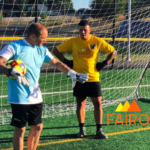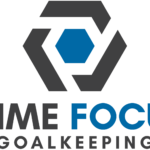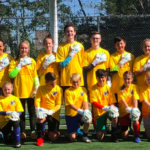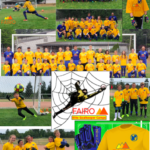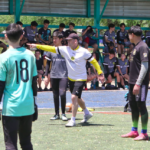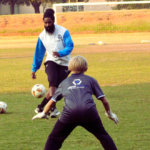Building Champions: Why Repetition is the Secret Weapon of Goalkeeping Camps
Goalkeeping essentials for any aspiring goalkeeper, the dream is clear: diving like a superhero, making impossible saves, and leading your team to victory. But that dream is built on a foundation of hard work, dedication, and a whole lot of repetition.
Let’s deeper into the science behind repetition and why it’s the secret weapon of goalkeeper camps, like the ones offered by Fairo Sport fairosport.com/elite-goalkeeper-camps
3 Key Takeaways on Repetition and Goalkeeping Development
- Muscle Memory and the Neural Core: It’s not just about physical repetition. Repeated practice strengthens the connections between your brain and specific muscle groups, creating a level of automaticity that lets you react instinctively. This is the essence of muscle memory, but it’s more than that. Repetition also promotes the development of efficient neural pathways, thanks to a fatty insulating layer around nerves called the myelin sheath.
- From Basics to Brilliant: Even professional goalkeepers like Tim Howard revisit basic skills to maintain their peak performance. Repetition at goalkeeper camps allows you to solidify these fundamentals, ensuring they become second nature. This strong foundation is what lets you perform complex maneuvers with seemingly effortless precision.
- Building Champions from the Ground Up: Young athletes are still developing their neural pathways. Difficulty performing a skill might not be about understanding; it could simply be the ongoing process of myelin sheath development. Coaches at goalkeeper camps understand this. They emphasize repetition with patience, creating a strong foundation for future growth and putting you on the path to becoming a champion.
The Neural Core of Goalkeeping
While modern training methods offer valuable complexity, the core principle of repetition remains essential for establishing a foundation in motor skills.
Effective skill acquisition in goalkeeping hinges on the development of strong neural pathways alongside muscular memory. Repeated practice strengthens the connections between the brain and specific muscle groups, fostering a level of automaticity akin to “signing your name” (para. 1). This well-documented phenomenon in motor learning research (e.g., [Karni et al., 1995]) is the essence of muscle memory.
But the story doesn’t stop at the muscles. The myelin sheath, a fatty insulating layer around nerves, plays a critical role. Just as the author describes (para. 3), a damaged myelin sheath, as in Guillain-Barré Syndrome (GBS), disrupts nerve signal transmission, leading to a decline in motor function similar to a child’s developing nervous system (para. 4). Research on post-stroke rehabilitation reinforces this point, demonstrating how repetition promotes neuroplasticity, the brain’s ability to reorganize itself, and functional recovery [Murphy & Corbett, 2009]). Rehabilitation through repetitive exercises helps rebuild these connections and restore motor function (para. 4)
Fairo Sport Elite Goalkeeper Camps: Repetition for Success
At Fairo Sport’s Elite Goalkeeper Camps we know repetition is key. Our camps provide a structured environment where you’ll receive high-quality coaching, focusing on core fundamentals and advanced techniques through repetitive drills.
By combining repetition with expert guidance and a focus on both physical and neurological development, Fairo Sport Elite Goalkeeper Camps equip you with the skills and confidence to dominate the field.
Ready to take your goalkeeping to the next level? Sign up for a Fairo Sport Elite Goalkeeper Camp today!


